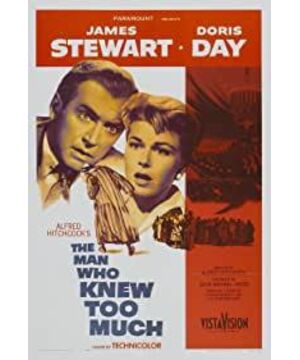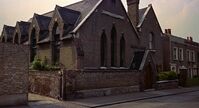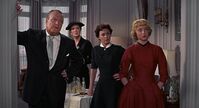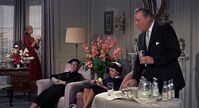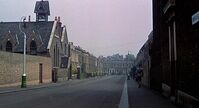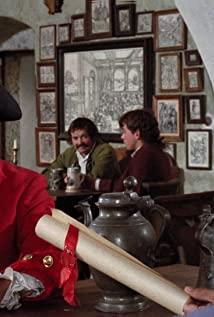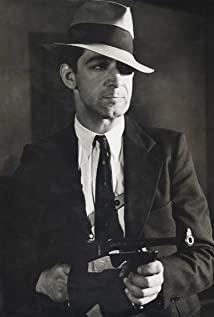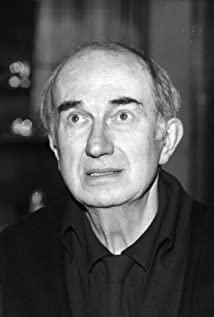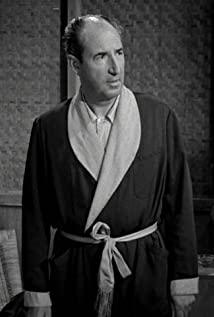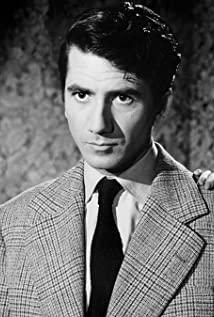finally started to write something, but I did not expect that the first film review turned out to be about Hitchcock, the master of suspense—a small suspense drama.
It was really pure accident. I saw him accidentally and fell in love with this old movie accidentally. . .
Different from the production of extravagant and fancy blockbusters today, this old film is more of a usual shot, using the plot itself to promote the development of the event, and firmly grasp the hearts of the viewers.
Hitchcock directed this film twice, one was a black and white version shot in the UK in the 1930s, and the other was a remake in the United States in 1955. I saw the latter. The film depicts an American family on vacation in Switzerland, accidentally learning from a dying spy that a diplomat based in London will be assassinated while he is attending a concert. In order to keep the couple tight-lipped, the assassins kidnapped their children as hostages, but they still went to the music center. The assassination was prevented and their children were also rescued.
Although the film is a suspense drama, it mixes diversified materials such as spy films, cop films, comedies, etc., into a rich and powerful work, and subtly reflects the European political situation that was on the verge of that year. .
And the whole plot is not full of conspiracy killings. What we can see is how a kind couple did their best to rescue their children. In the end, when the heroine Doris was in front of the piano with tears in her eyes and anxiously sang the song "whatever will be, will be," which contained family affection, the protagonist successfully rescued their children and reunited the whole family, pushing the strong affection on them. climax.
Attachment: Hitchcock Chronology
On August 13, 1899, Alfred Joseph Hitchcock was born in Leidenston, east London, in an ordinary family of vegetables wholesale.
In 1913, he took an optional art course at the University of London.
In 1920, Hitchcock nominated himself to work in a studio set up by Laski Star in the United States. Experienced subtitle design, art director, editing and other work.
At the end of 1922, he filmed "Mrs. Peabody" (aka No. 13), which was his first directing.
In 1923, Hitchcock served as an assistant director in "Woman vs. Woman".
In 1924, Hitchcock filmed "Shadows of White", "A Passionate Adventure", "The Fall of Pruitt" and "The Villain".
In 1925, "Happy Garden" and "Mountain Eagle" (first independently directed film).
In 1926, directed the film "The Tenant" ("The Boarder"). On December 2, Hitchcock and Irma officially married.
In 1927, he directed the films "Downhill Road" and "Swimming Flowers". Then, Hitchcock signed a contract with the British International Film Company and directed "The Bracelet" and "The Farmer's Wife" one after another.
In 1928, directed the films "Champagne" and "Monks Man".
In 1929, the film "Blackmail" directed by Hitchcock became the first ever sound film in British history.
In 1930, "Juneo and the Peacock" (adapted from the stage play by Sean Okathy).
In 1931, filming "Scam".
In 1932, directed the films "No. 17" and "Strange Rich Man". During this period, he directed "A Generation of Confidantes". Resigned from his position in the British International Film Company.
In 1933, directed the film "Waltz in Vienna". Employed by the British Gaomeng Film Company.
In 1934, directed the film {People who know too much" ("Assassin's House").
In 1935, directed the films "Thirty-Nine Steps" and "Spy Doomsday".
In 1936, directed the film "Destruction".
In 1937, directed the films "Young Ignorance" and "The Missing Woman".
In 1938, the directed films "Jamaica Hotel" and "The Missing Woman" won the New York Film Critics Association Award and were selected as the best film of the year, attracting Hollywood's attention.
In 1939, at the beginning of World War II, Hitchcock went to Los Angeles with his family and started his work in Hollywood. Directed the film "Butterfly Dream", won the 13th Oscar for Best Picture, Best Black and White Film Photography Award.
In 1940, directed the films "Overseas Commissioner" and "Smiths".
In 1941, directed the film "The Cape Captures the Murder".
In 1943, directed the film "Lifeboat".
In 1944, Hitchcock directed French short films "Safe Trip" and "Adventures of Madagascar" in London; after returning to the United States, he began filming "Doctor Edward".
In 1945, directed the film "Beauty", which was also the last Hitchcock movie starred by Ingrid Bergman. Her "elopement" with Rossellini gave Hitchcock a big blow.
In 1946, he established an independent production company in the UK with Sidney Bernstein.
In 1947, directed the film "Palatinate Case".
In 1948, Hitchcock's independently produced film "Rope" came out, which was also his first color film. Directed the film "Under Capricorn".
In 1949, directed the film "Stage Fright". The company that Hitchcock worked with a friend went bankrupt. Started co-production with Warner Bros. Pictures.
In 1950, directed the movie "Stranger on the Train", which was based on the novel by Patricia Highsmith.
In 1952, directed the film "I Confess".
In 1953, directed the film "Telephone Murder" (first filmed with stereoscopic film technology) and another masterpiece "Rear Window".
In 1954, directed the film "Catch a Thief".
In 1955, directed the film "People Who Know Too Much" (remake). In the same year, he became a citizen of the United States. In October, began filming the TV series "Hitchcock Theater". Directed and completed the TV series "Retaliation".
In 1956, directed "Harry Trouble" and "The Wronged Man".
In 1957, "Among the Dead" was filmed, which was later renamed "Vertigo". On September 30, the TV series "Deep Boudoir Suspicious Cloud" began to air.
In 1959, directed the film "Northwest by Northwest".
In 1960, directed the film "Mentally Ill" and won the 1960 Hollywood Foreign Press Association Golden Globe Award for Best Supporting Actress. The bizarre subject matter, unexpected story development, and low-budget black and white production make this movie a milestone in Greek film career.
In 1963, Hitchcock signed a contract with Universal Pictures. Directed the film "The Birds".
In 1964, directed the film "Marnie". At that time, the directors of the French New Wave were more or less influenced by Hitchcock. We will have some experience when we look at the works of the time, and we can see it more clearly in the interview between Treff and Hitchcock.
In 1965, published an interview "Hitchcock on Movies".
In the late autumn of 1966, the filming of the film "The Broken Curtain" began.
In April 1968, Hitchcock received the "Owen Thalberg Memorial Award" from the American Academy of Motion Picture Arts and Sciences. The University of California awarded Hitchcock an honorary doctorate.
In 1969, directed the film "Topaz".
In 1971, Hitchcock was awarded the Knights Medal of the French Legion of Honor. For the filming of the movie "Frenzy", Hitchcock returned to his homeland where he had been away for many years.
In 1972, he directed the film "Frenzy", allowing the audience to see Hitchcock's heroic wind. This film is smooth and rounded and is a masterpiece of the later period of Greece. Hitchcock received the Golden Globe Award and was awarded an honorary doctorate by Columbia University.
In 1975, directed the film "Family Conspiracy".
In 1979, Hitchcock was awarded the Lifetime Achievement Award by the American Academy of Motion Picture Arts. Due to physical reasons, he was forced to give up his film work.
On January 1, 1980, Queen Elizabeth II granted the title of Sir Hitchcock. On the evening of April 28, Alfred Hitchcock died in Los Angeles due to renal failure.
View more about The Man Who Knew Too Much reviews


